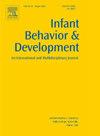婴儿偶然性学习研究的四分之一世纪:当前和未来的方向
IF 1.9
3区 心理学
Q3 PSYCHOLOGY, DEVELOPMENTAL
引用次数: 0
摘要
虽然传统的学习范式为20世纪60年代到90年代婴儿研究领域的出现提供了坚实的基础,但在过去的25年里,对婴儿偶然性(操作性)学习的研究并没有引起太多的关注。虽然这种忽视的原因尚不清楚,但学习协议为婴儿研究领域提供了宝贵的贡献,包括基础研究、转化工作和应用。对过去四分之一世纪文献的研究表明,操作性学习概念在代理发展、目标阻断反应性、临床跨组比较和发展干预方面的应用。在婴儿具有偶然性学习能力的基础上,研究探索了潜在的机制,包括协调运动动力学和心理生物学相关。方法上的创新——比如新的范例和前沿技术,比如动作捕捉、眼球追踪和计算建模——进一步完善了我们对这些过程的理解。努力的重点还在于查明促进学习的条件和造成数据丢失的因素。一个首要的问题仍然是婴儿是否在偶然性学习中表现出能动性。此外,最近的研究已经从主要的实验组方法转向考虑早期学习的个体差异。然而,传统的学习指标是否有效地捕捉非单调行为变化和学习模式的可变性尚不清楚。这篇综述为将这些范式重新整合到婴儿研究领域提供了有说服力的理由,讨论了为实现这一目标应解决的文献差距,并提出了推进该领域的未来方向。本文章由计算机程序翻译,如有差异,请以英文原文为准。
A quarter century of research on infant contingency learning: Current and future directions
Although traditional learning paradigms provided a substantial base for the emergence of the field of infant studies from the 1960s through the 1990s, research on contingency (operant) learning in infancy has not attracted much attention over the last 25 years. While the reasons for such neglect are unclear, learning protocols offer valuable contributions to the field of infant studies, spanning basic research, translational work, and application. An examination of the literature over the last quarter century shows operant learning concepts in use with respect to the development of agency, goal blockage reactivity, clinical cross-group comparisons, and developmental interventions. Building upon the foundation that infants are capable of contingency learning, research has explored underlying mechanisms, including coordinated movement dynamics and psychobiological correlates. Methodological innovations—such as novel paradigms and cutting-edge techniques like motion capture, eye-tracking, and computational modeling—have further refined our understanding of these processes. Efforts have also focused on identifying conditions that promote learning and factors contributing to data loss. An overarching question remains whether infants demonstrate agency during contingency learning. Additionally, recent research has shifted from a primarily experimental group approach to considering individual differences in early learning. However, it is unclear whether traditional learning metrics effectively capture nonmonotonic behavioral change and variability in learning patterns. The review offers cogent rationales for reintegrating these paradigms into the field of infant studies, discusses gaps in the literature that should be addressed for this goal to be realized, and proposes future directions for advancing the field.
求助全文
通过发布文献求助,成功后即可免费获取论文全文。
去求助
来源期刊

Infant Behavior & Development
PSYCHOLOGY, DEVELOPMENTAL-
CiteScore
4.10
自引率
4.80%
发文量
94
期刊介绍:
Infant Behavior & Development publishes empirical (fundamental and clinical), theoretical, methodological and review papers. Brief reports dealing with behavioral development during infancy (up to 3 years) will also be considered. Papers of an inter- and multidisciplinary nature, for example neuroscience, non-linear dynamics and modelling approaches, are particularly encouraged. Areas covered by the journal include cognitive development, emotional development, perception, perception-action coupling, motor development and socialisation.
 求助内容:
求助内容: 应助结果提醒方式:
应助结果提醒方式:


